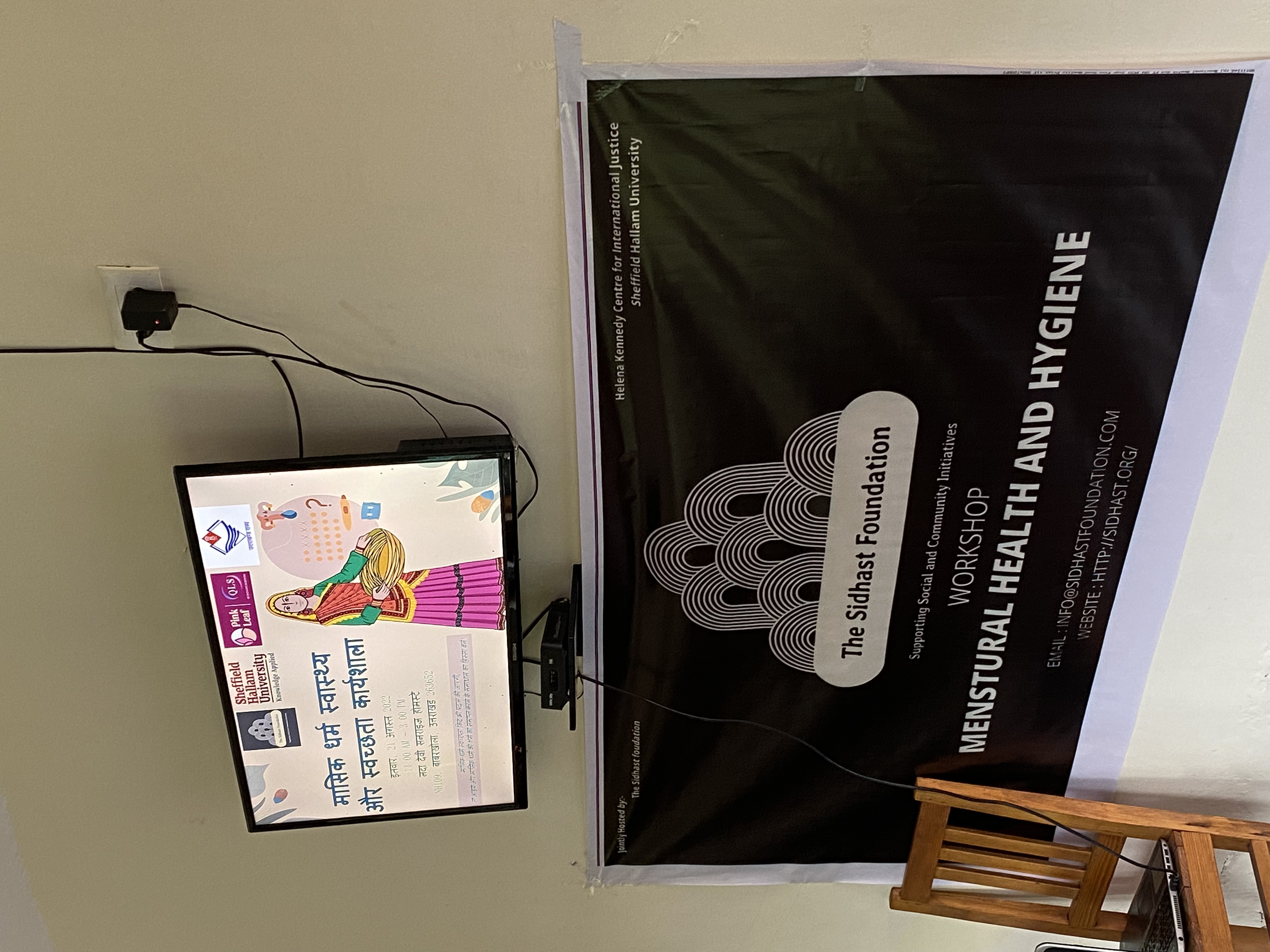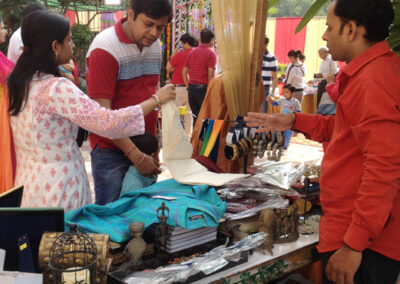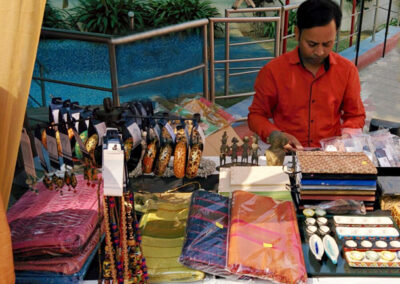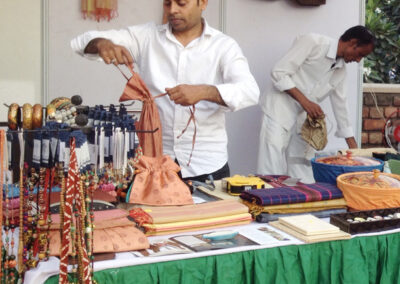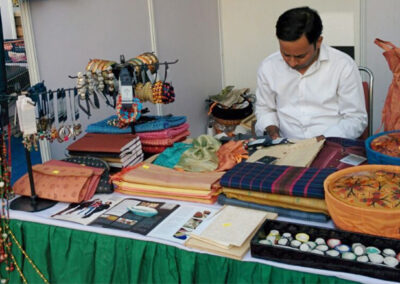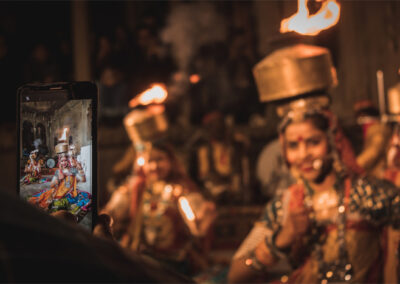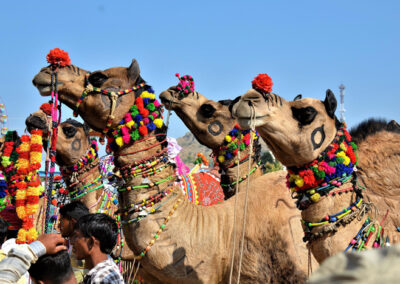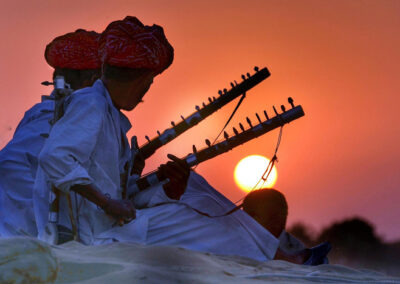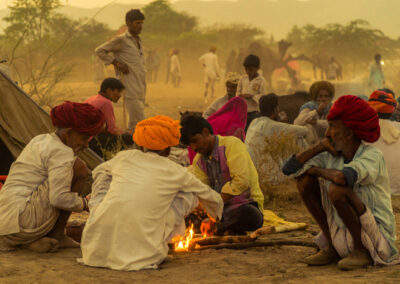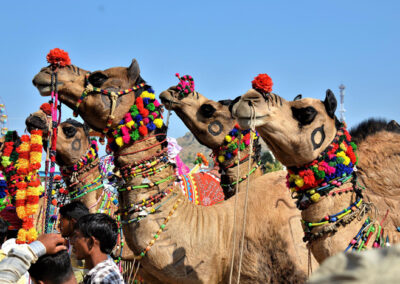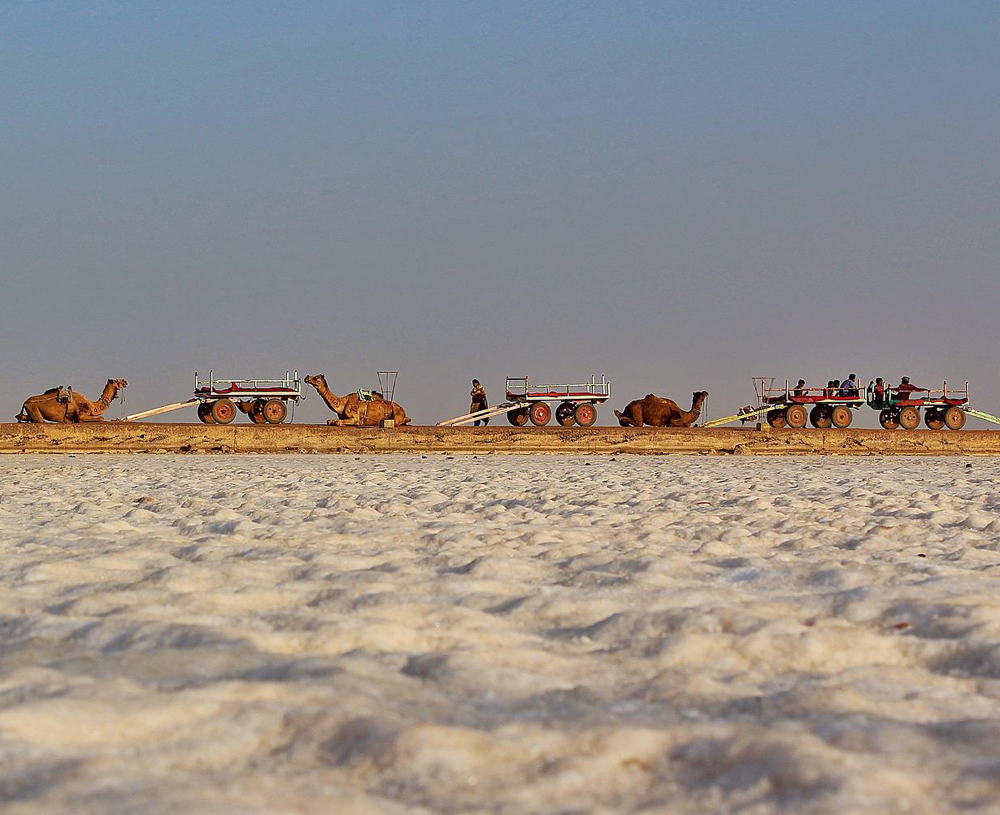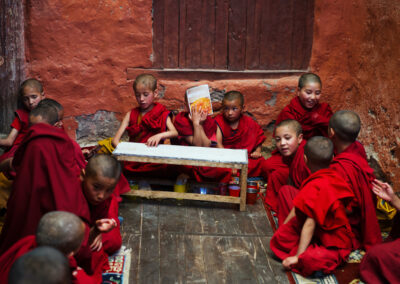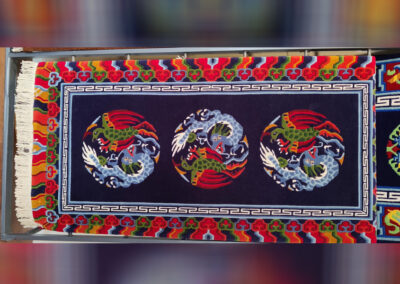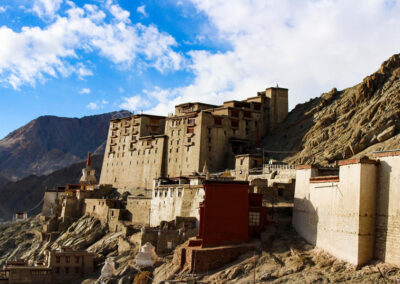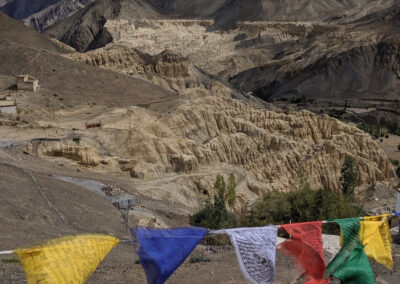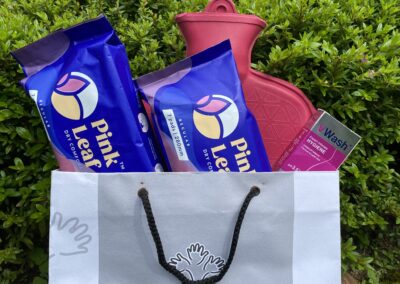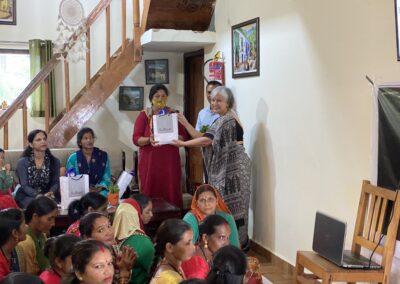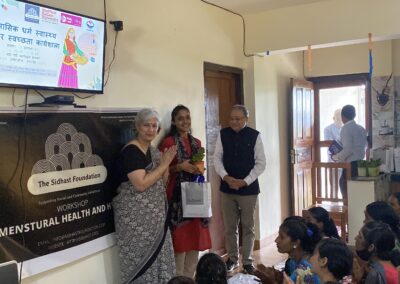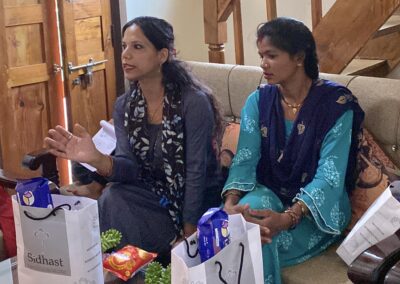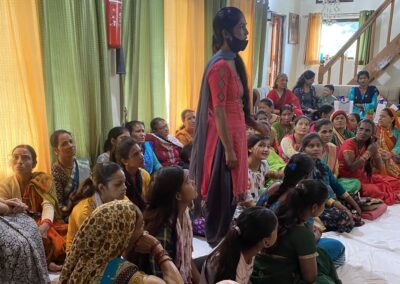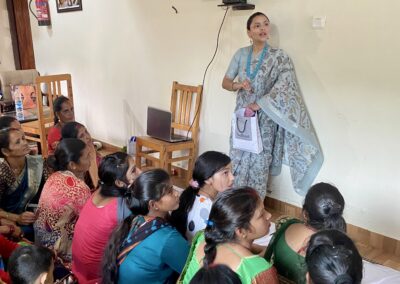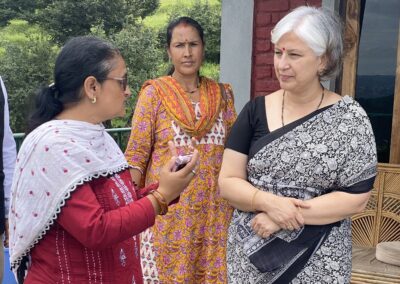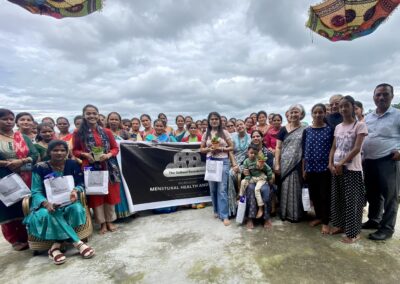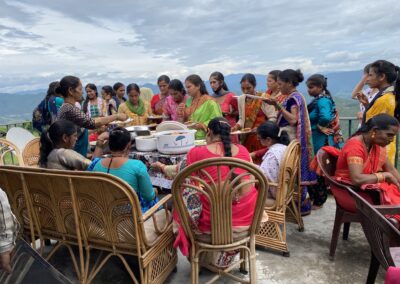LEARNING FROM THE MASTERS
Mr Hakim Tassadduk Hussain – The Art of Papier-mâché
Mr. Hakim Tassadduk Hussain also known as ‘golden hands’, is a Kashmiri papier-mâché mastercraftsman, registered with the J&K Handicrafts Department since 1986. He has received numerous awards including one by the President of India, as recognition for his exemplary contribution to the craft through his personal practice and efforts in promotion and awareness of the craft through workshops across India. He started his practice with M.Qarim, an exporter, and continued working with this export house for 4 years, thereafter he set up his own studio and unit employing 30 artisans. At 71 years he continues to obsessively pursue his passion for excellence in his craft, a result of which he received his 3rd award for excellence as recently as 2019 from the J&K Handicrafts Department. Hakim Tassaduk Hussain has been associated with TSF for over two decades. It has been a pleasure and honour to work with him.
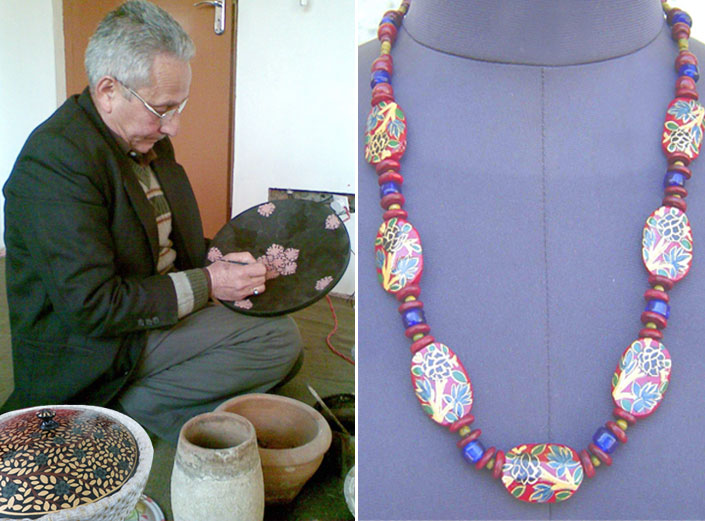
Late Dr Ismail Mohammad Khatri – Ajrakh Dying and Printing Workshop
Ajrakh Dying and Printing Workshop organized by Prof Promil Pande with her Research Associate Ms. Suchi for the design students at Ansal University, Gurgaon. The workshop was an endeavour to promote the use and knowledge of the craft of Ajrakh dyeing and printing, a traditional textile craft practiced by the Khatri community of Kutch, Gujarat. Dr Ismail Mohammad Khatri, a master craftsman, conducted the two-day workshop.
SUPPORTING OUR ARTISANS AND CRAFTSPEOPLE
Vendor Supplier for Fabindia
TSF has facilitated vendor suppliers for Fabindia – India’s largest private platform that links over 55,000 craft based rural producers to modern urban markets, for over 10 years. The artisanal cluster groups that have been supported by TSF include but are not limited to: Khurja ceramics (Bulandshahr District); Kashmiri papier-mâché, wicker products and fabrics; Bhagalpuri fabrics such as Matka silk and Jaipuri semi-precious stones.

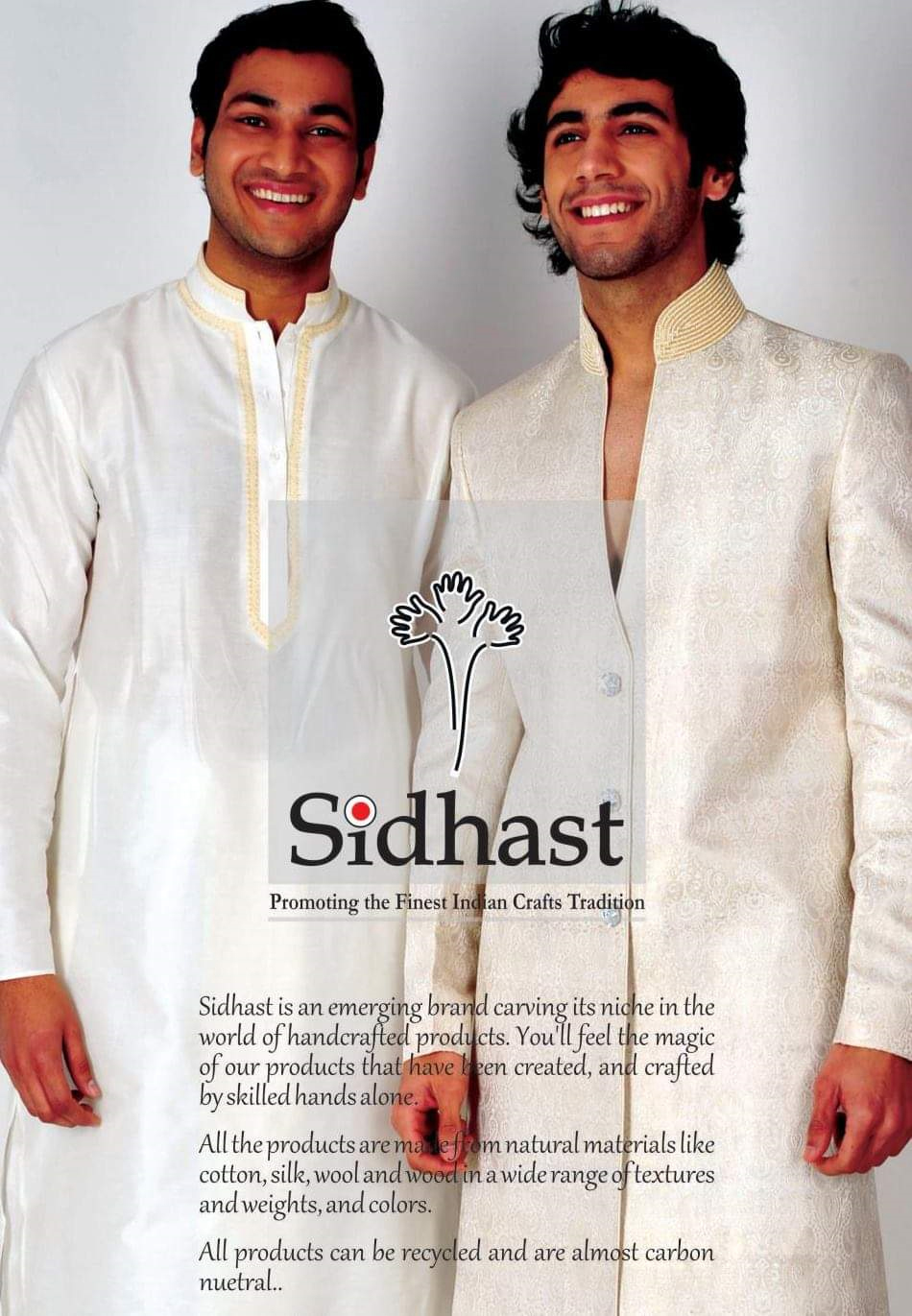
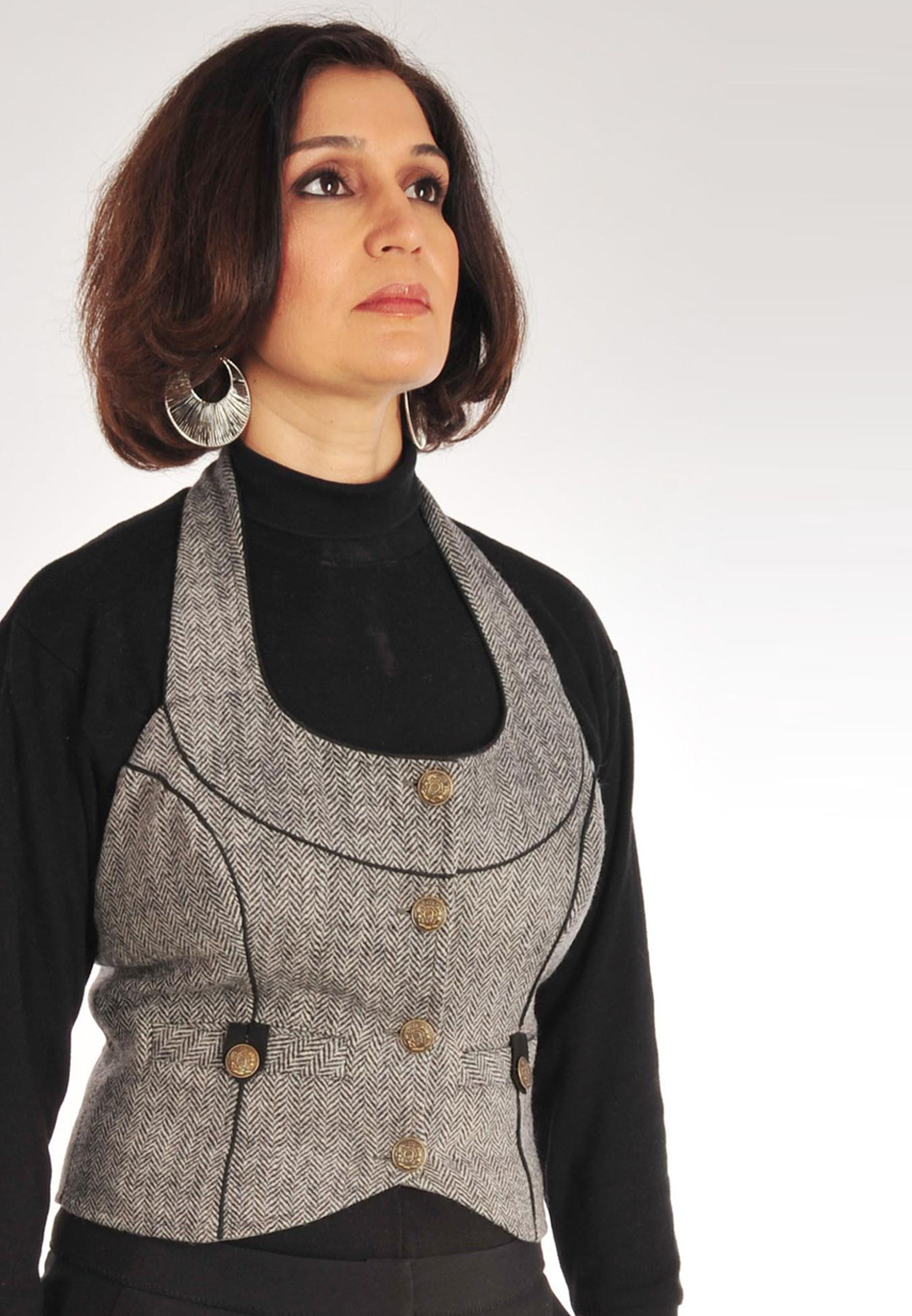
Community Programme with Bal Bhavan International School, Delhi
TSF partnered with Bal Bhavan International School, Delhi for a Diwali Community Programme that included ten student volunteers from classes IX-XII led by Dr Madhumita Pandey, Guidance Counsellor. These incredible student volunteers promoted our handcrafted products and supported the artisans during this festive period. They also spread awareness about the importance of preserving our rich craft traditions. Tanishka Bhitoni won the prize of ‘Highest Collection’ followed by Arunima Negi.

Diwali Mela at Dilli Haat
The Sidhast Foundation was invited by Banjara Exhibitors to present our exquisite range of handcrafted products at the 2014 and 2015 Diwali Utsav held at Dilli Haat. This four day event was overseen by the TSF team led by Mr. Khan. TSF stall was one of the most visited and received a lot of love and support from the community. This in turn directly impacted the artisan communities that we support.
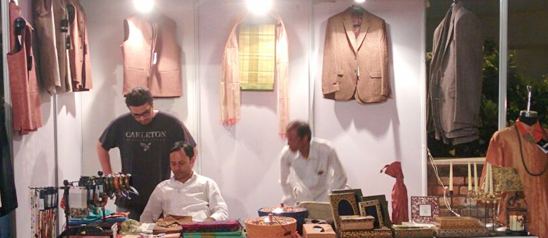
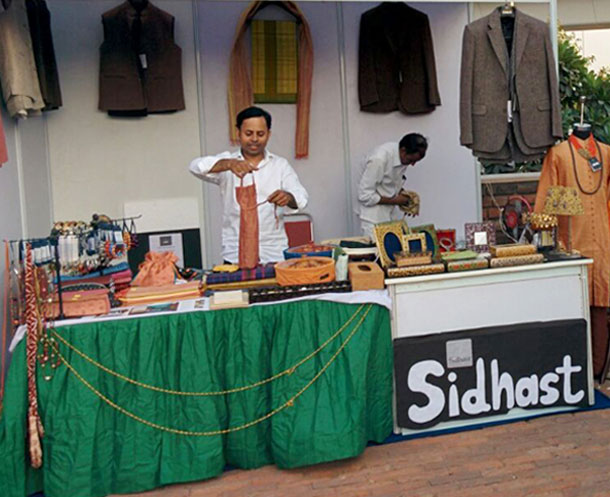
RESEARCH AND FIELD TRIPS
Pushkar Mela, Rajasthan (2012)
Our founders, Prof Promil Pande and Mr Mukul Pande, embarked on a research trip to Rajasthan and Gujarat to explore various craft traditions and practices. One of the highlights was attending The Pushkar Fair, also called the Pushkar Camel Fair or locally as Kartik Mela. This is an annual multi-day livestock fair and cultural fête held in the town of Pushkar, Rajasthan, India. The fair attracts over 200,000 visitors and features temple dancing, folk and fusion music concerts, spiritual and heritage walks, adventure zone, and an arts and crafts bazaar as well. As Richard Sennett says, “Craftsmanship names an enduring, basic human impulse, the desire to do a job well for its own sake” and this could not be more evident than in the beautifully crafted textiles to animal trappings displayed here at the fair.
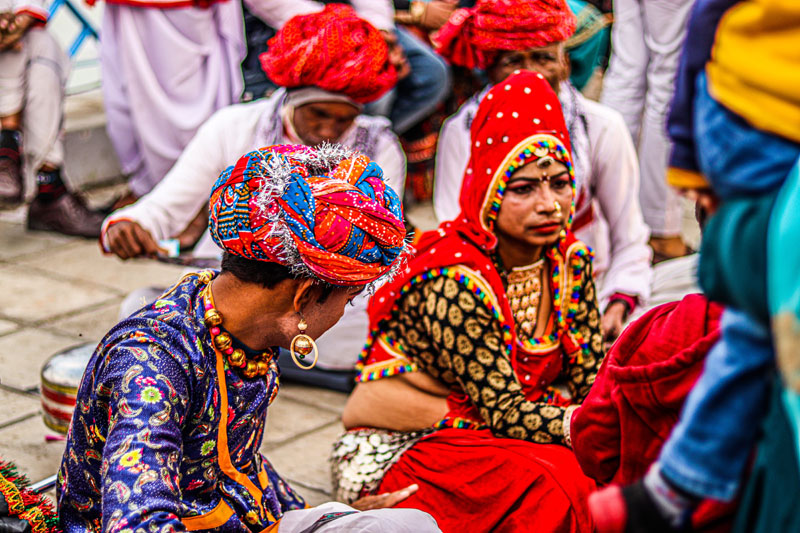
Natural Dyeing Practices, Gujarat (2013)
The Great Rann of Kutch is a salt marsh in the Thar Desert in the Kutch District of Gujarat, India. It is about 7500 km2(2900 sq miles) in area and is reputed to be one of the largest salt deserts in the world. This study was focused on researching some of the natural dyeing techniques prevalent and practised for centuries across Gujarat. Gujarat is one of the 29 states of India located along the Western Coast. Located in a number of areas situated within the Indus Valley civilization, numerous inhabitants of Gujarat trace their ancestry in craft and commercial activities to antiquity. Natural dyeing practices are one such tradition. Natural dyes have a long and rich history in cultures across the globe. Undergoing constant refinement, yet bolstered in distinct narratives and nuances of tradition, they have been represented in centuries worth of art and craftsmanship. Replaced in the mid 19th and 20th centuries by synthetic dyes globally, there is once again a resurgence of interest and appreciation in natural dyes and dyeing processes with respect to their potentiality in aiding sustainable design. This study outlined the advantages of indigenous natural dyeing processes, addressing the aspect of materiality and the effect the waning use of natural dyes has had on the evolution of the practice itself. The primary mode of enquiry was an ethnographic enquiry complemented by field interviews conducted with artisans and practitioners. (Sponsored by DCH Ministry of Textiles)
Ladakh (2018)
Another research field trip was undertaken to explore the majestic region of Ladakh. Ladakh is a Union territory of India situated in the northernmost region of the country. The cold climate with temperatures dropping to -40 and lower in some regions makes the use of warm clothing and floor coverings a necessity leading to innovative and creative ways of crafting products for personal consumption historically. It is the producer of the finest pashmina wool used for the world famous pashmina shawls and pashmina carpets (the fame a result of the exquisite craftsmanship of Kashmiri spinners and weavers that led to worldwide demand of shawls and carpets amongst the aristocracy). Amongst its craft traditions Ladakh has an indigenous carpet weaving tradition unique to the region whereby weaving is done on portable backstrap looms in strips of 18 inches. These woven strips are then hand stitched into rugs tsokdan of desired widths. (Sponsored by The Sidhast Foundation)
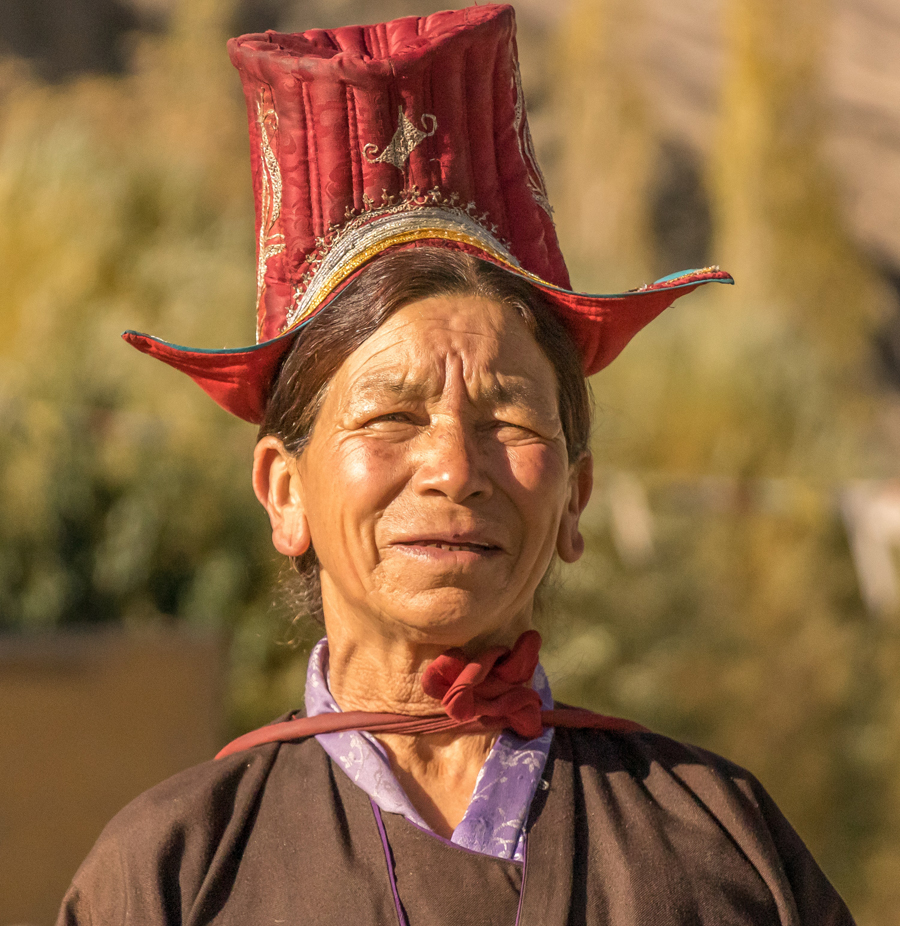
MENSTRUAL HEALTH AND HYGIENE WORKSHOPS
Baberkhola Workshop (August 2022)
A workshop and focus group on Menstrual Health and Hygiene was jointly conducted by: The Sidhast Foundation (TSF) and Helena Kennedy Centre for International Justice, Sheffield Hallam University, England in August 2022 in Uttarakhand, India. This initiative took place in partnership with the CMO Office Ranikhet and BDO Office, Dwarahat. TSF Menstrual Hygiene Kits were provided by Pink Leaf, a company started by two young men Akshay Bansal and Gibran Qureshi from Delhi. The workshop was led by Dr Kavisha Pali from Majkhali Medical Centre. The focus group was led by Dr Madhumita Pandey and supported by Dr Babita Joshi from Dwarahat. The attendees included: Mrs. Yamini Joshi (Block Mission Manager) from Dwarahat with a group of 15 women, Ms. Renu Arya, from Gram Sabha Sokola with a group of 10 women, Ms. Shobha Bisht from village Tushiari with a group of 8 women and Anganwadi Worker Ms. Hema Bisht. Additionally women from the vicinity (Dwarson and Baberkhola) also attended the workshop making the total number 52. The workshop was presided by Smt. Mamta Arya, Female Pradhan for Villages Baberkhola, Tushiari and Machalia. This important initiative was very well received and covered by the local media – Dainik Jagaran. Currently TSF and partners are developing Phase II of the initiative which will focus on the school students of Dwarson Inter College.
